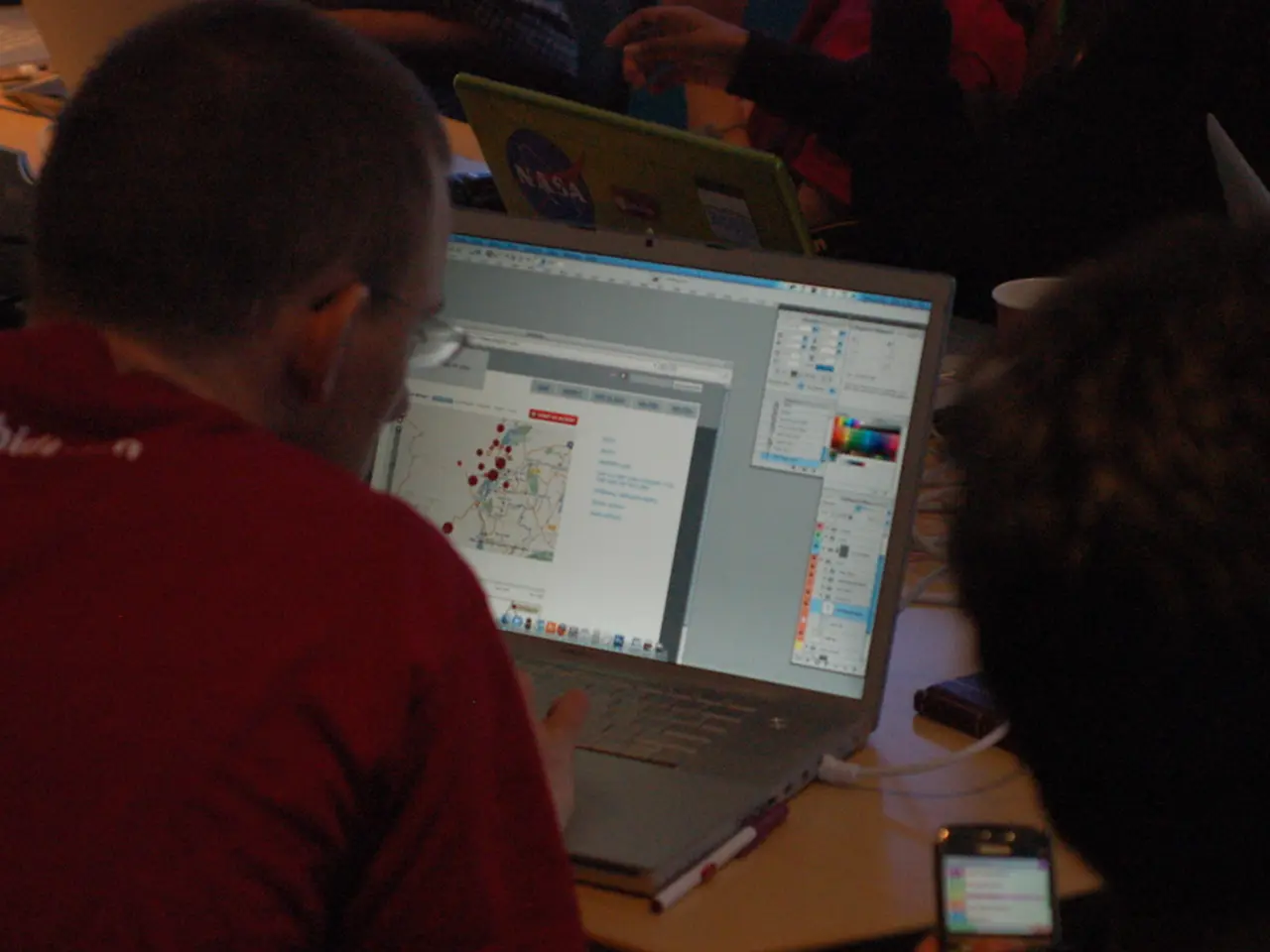Smartphone located on the table: Reasons it might be problematic. - Phone situated on table?
Recent studies suggest that having a smartphone nearby during conversations or work can negatively impact both closeness and productivity in several ways.
Impact on Closeness
The mere presence of a smartphone can distract individuals, reducing their ability to focus fully on interactions. This distraction can lead to a sense of disconnection and a lack of closeness in personal relationships. Excessive smartphone use, often linked to social media, can enhance self-absorption, leading to narcissistic traits and decreased empathy, which can further erode interpersonal connections.
A study conducted by Prof. Dr. Sven Lindberg and Jeanette Skowronek at the University of Paderborn found that the mere presence of a smartphone during a simulated video conference negatively affects attention, productivity, and task-switching abilities. Another study by the University of Essex in 2012 demonstrated that the presence of a smartphone or small laptop during a conversation can negatively impact the perception of the conversation.
The study conducted by Lindberg and Skowronek also showed that smartphones can be a source of distraction, even when the screen is off. Participants with a smartphone on the table were found to be slower, less focused, and had more difficulty switching between tasks compared to those without a smartphone. The study's findings indicate that to build personal relationships, it is recommended to keep the smartphone away from the table and ideally out of the same room.
Impact on Productivity
Frequent notifications and the temptation to check devices can severely disrupt work flows, leading to a decrease in productivity. This interruption can make it difficult to delve into tasks deeply, affecting both creativity and concentration. The need to constantly check or respond to messages increases cognitive load, reducing the mental resources available for tasks, which can lead to lower productivity and performance.
Smartphones can also distract students from educational activities, negatively impacting learning outcomes by reducing engagement and increasing time spent on non-academic pursuits. A study by the University of Paderborn found that a phone, even when just nearby, can prevent real closeness from developing between people.
The study did not specify the exact mechanism by which smartphones hinder attention, productivity, and task-switching abilities, but it is suggested that the presence of the device creates a barrier to genuine focus. The study did not investigate the effects of smartphones on existing relationships, focusing instead on their impact on initial interactions.
In conclusion, the presence of smartphones can detract from both personal and professional engagements by increasing distractions, reducing focus, and negatively affecting interpersonal connections. Placing a smartphone further away from oneself can help reduce distractions and improve focus during conversations and work. To build personal relationships or work productively, it is recommended to keep the smartphone away from the table and ideally out of the same room.
Committing to a community policy that restricts smartphone usage during conversations or work could help in maintaining focus, fostering closeness, and enhancing productivity. Employers might institute employment policies encouraging the use of technology such as gadgets and smartphones for work-related purposes only during designated breaks to increase overall productivity.




